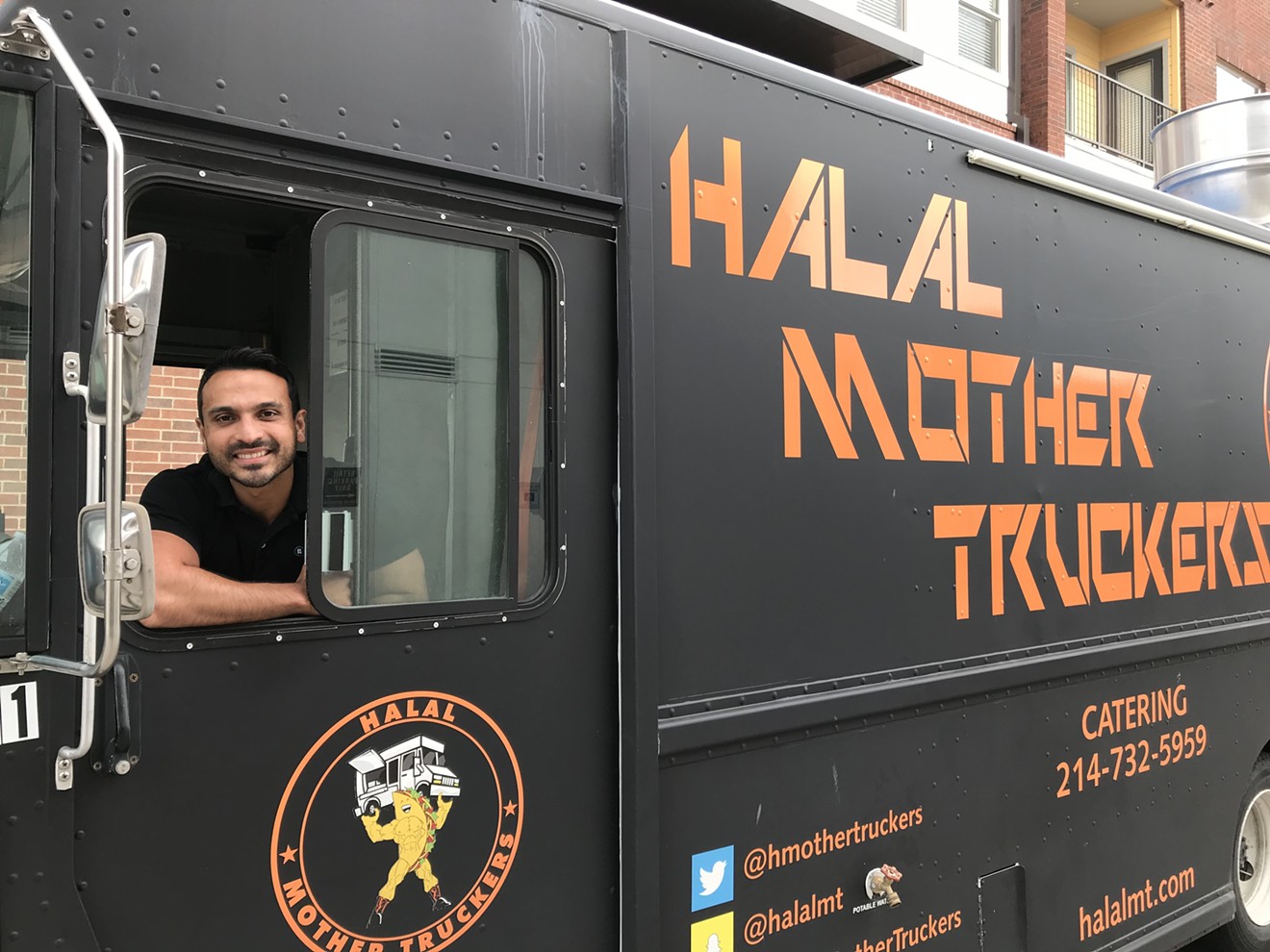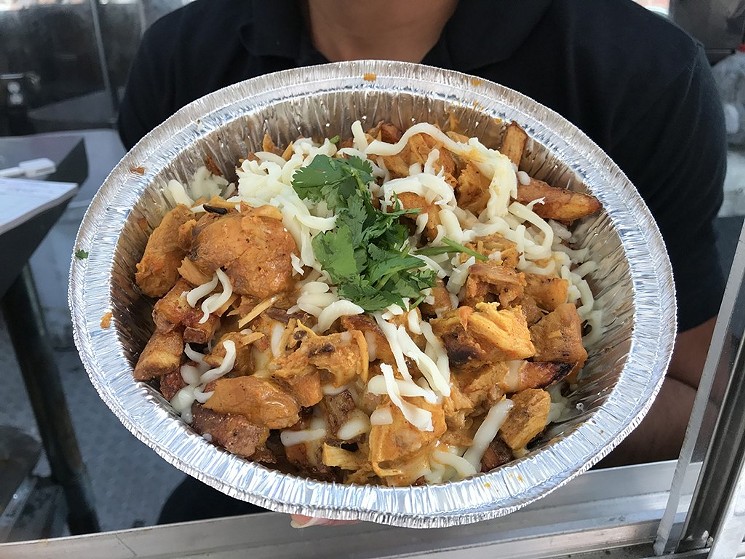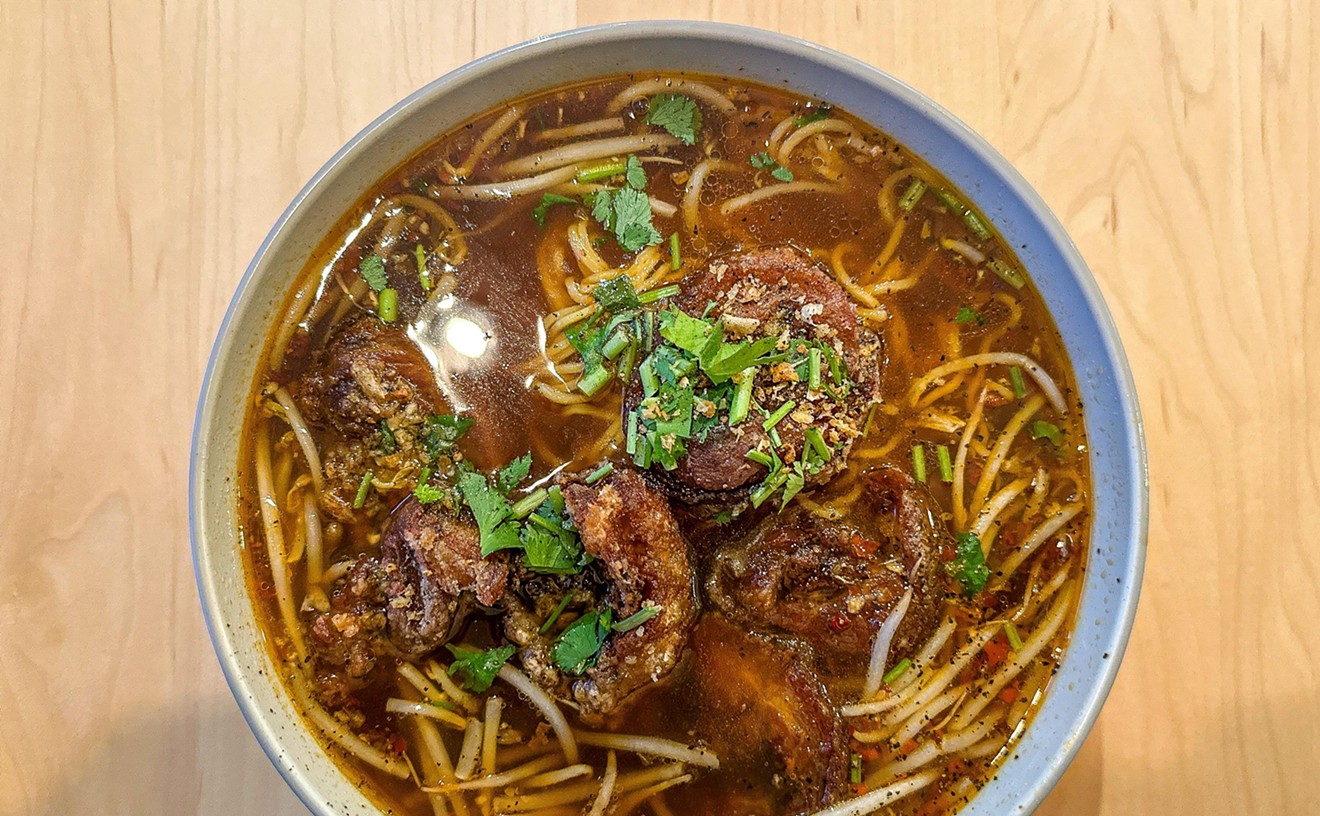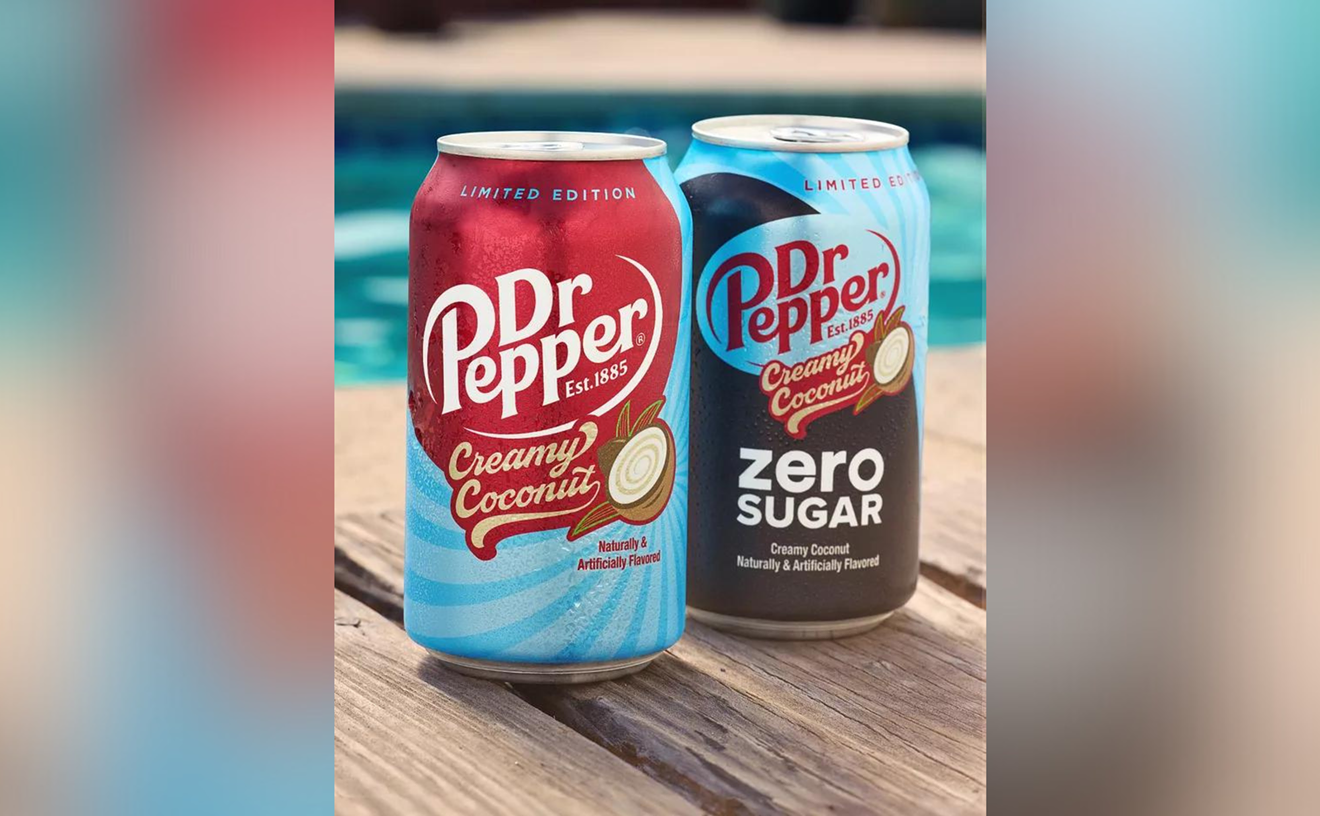The answer is that Dallas strictly regulates trucks, and especially trailers, which are stationary and operate in one designated location. That could be changing. Our City Council recently created a Mobile Food Vending Task Force to investigate and recommend changes to the rules. (Former Observer food editor Taylor Adams, who wrote the article linked earlier in this paragraph, now serves on the task force.)
No specific recommendations have been made yet. The committee is still talking to small business owners and looking to other cities for ideas. But I was curious to ask Dallas-area food truck and trailer operators what they think about the current rules and what they would change.
I called Umar Baig, owner of Halal Mother Truckers, and Daisy Wall, who runs Tacos La Gloria with her family. Halal Mother Truckers is a 3-year-old mobile truck that visits numerous North Texas cities and makes acclaimed appearances at local festivals, so Baig knows how Dallas' rules compare to its neighbors’. Tacos La Gloria is a stationary trailer that opened Feb. 6 in Oak Cliff, which means Wall has very recent experience navigating Dallas rules as a new business owner.
Overall, both owners reported generally positive experiences with Dallas regulations: They generally agreed that the rules make sense, and that the people who administer them are kind and helpful. But they certainly still have feedback.
One hurdle that both owners mention is that Dallas has its own requirements for the outfitting of trucks and trailers. If you buy your truck from someone in Houston or Austin, you’ll need to spend serious money adjusting the unit to meet Dallas’ different standards. Baig bought a former Houston food truck and spent $4,000 updating it, but, he says, his truck now has much better fire safety features, including new extinguishers, so the expense was worthwhile.
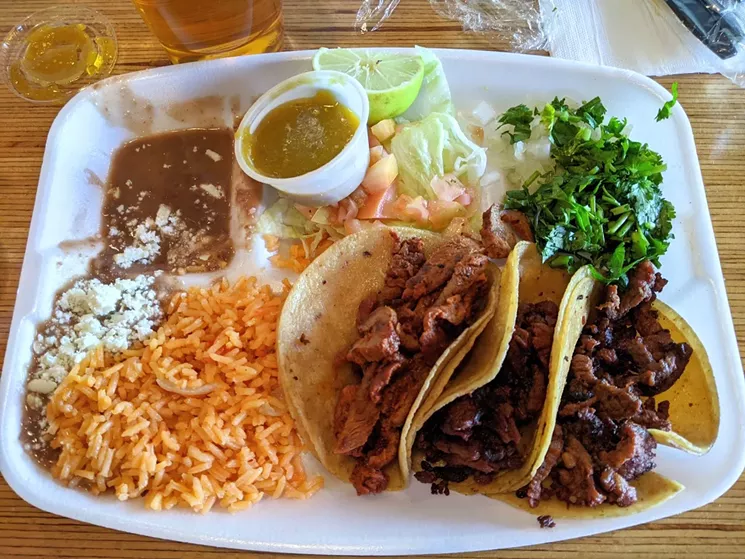
A plate of beef fajita tacos from Tacos La Gloria, served on its opening weekend at Oak Cliff Brewing Co.
Brian Reinhart
Wall and her family bought an immobile trailer from another city to start Tacos La Gloria and discovered the water and grease tanks were a gallon too small for Dallas regulations, which meant buying all-new tanks. Dallas also required adding a barrier between hand-washing and food-prepping sinks. They spent about $3,000 meeting the city’s requirements.
Wall found the inspection process helpful, but initially confusing.
“At the beginning, just trying to figure out what’s necessary or what’s required from the city was a little difficult,” she says. “You can go to the website and they put out all the paperwork, but they don’t really tell you, like, you have to have your plans approved before you can turn this set of paperwork, and then you have to have this approved before you can move on to the inspection. That was difficult, but nothing a phone call couldn’t fix. Trying to get all of your paperwork in order and all of your permits, that’s what takes time. Making sure you get your appointments and whatnot.”
Wall recalls that her inspector was helpful in guiding her through the process, which involved surprise involvement from other city departments, like the fire department, and occasional surprise bills for steps that hadn't been fully explained on the Dallas website.
She says Tacos La Gloria took about two months to go through the full permitting process for its trailer. They had originally planned to open in early 2020, but the pandemic halted their plans for nearly a year. Instead, the trailer opened this month, serving tacos, machetes, huaraches, chilaquiles and an unusual specialty: folded and fried corn tortilla quesadillas. All of the tortillas are made from scratch.
Baig initially planned to make Halal Mother Truckers a stationary trailer, too, but is glad he opted for a mobile truck that can travel across counties to serve events.
“Don’t get me wrong,” he explains. “It’s a lot tougher. I have to sit through and look through events, figure out where my lunch is going to be, where my dinner is going to be.” But he is concerned about the rise of fixed-location trailers because he has seen other cities’ food truck scenes become cutthroat from intense competition.
“I have seen cities where they allow food trucks to be parked wherever they want and the food truck business itself becomes less profitable,” Baig says. “We start killing each other off. If we have food trucks parked everywhere, the only way we can bring in clientele is lowering down our prices. If you depreciate your value, you’re not only depreciating your value, you’re depreciating everybody else’s value as well.”
But the solution, he thinks, is a different sort of oversight. When I mention food truck plazas, which are popular in east Austin and downtown Portland, Oregon, his tone immediately changes.
“That I’m all for,” he says. “Please do that. And then the city can make money off us. And then everybody can go over there and park there.”
Baig, like Wall, has had positive experiences with Dallas health inspectors. “I’ve never had a problem with the city of Dallas. I’ve had hardcore inspectors come by. I had a health inspector once come in my truck and literally measure from the ceiling to the floor, checking my blinkers, my lights, and I’m like, hey man, the state inspects that. But as a food truck owner you should know; this is how I make a living.”
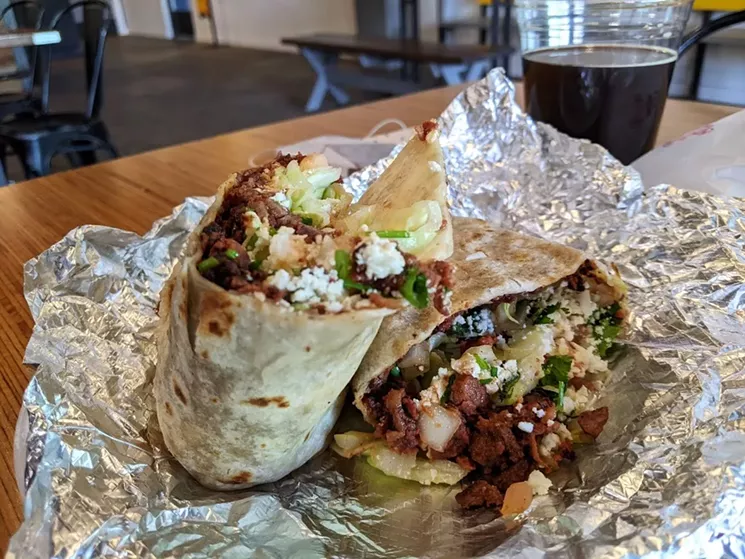
Tacos La Gloria's burrito is a minimalist affair with just meat, cheese, lettuce and cilantro.
Brian Reinhart
“Richardson makes you get a plethora of things before you can even get inspected,” Baig says. “They make you get a permit for a fire inspection. They make you get a permit to sell your food. Then they inspect your food truck.”
And then there’s the ultimate food truck wasteland: Frisco, which requires that a truck get a separate permit for every single address at which it parks.
“They’re so hardcore, if I’m coming to your house, I need a permit, and then if I go to another house tomorrow, I need another permit,” Baig tells me. “That’s extremely hard.”
Baig and Wall say Dallas can ease entry into the industry by explaining the approval process more clearly, creating designated food trailer plazas and, perhaps, by aligning inspection requirements with those of other cities wherever it is safe to do so.
But the other lesson from these conversations is important too: Dallas isn’t the only city in this region. If North Texas wants to build a vibrant food truck community, the suburbs will need to reform their ways, too.

